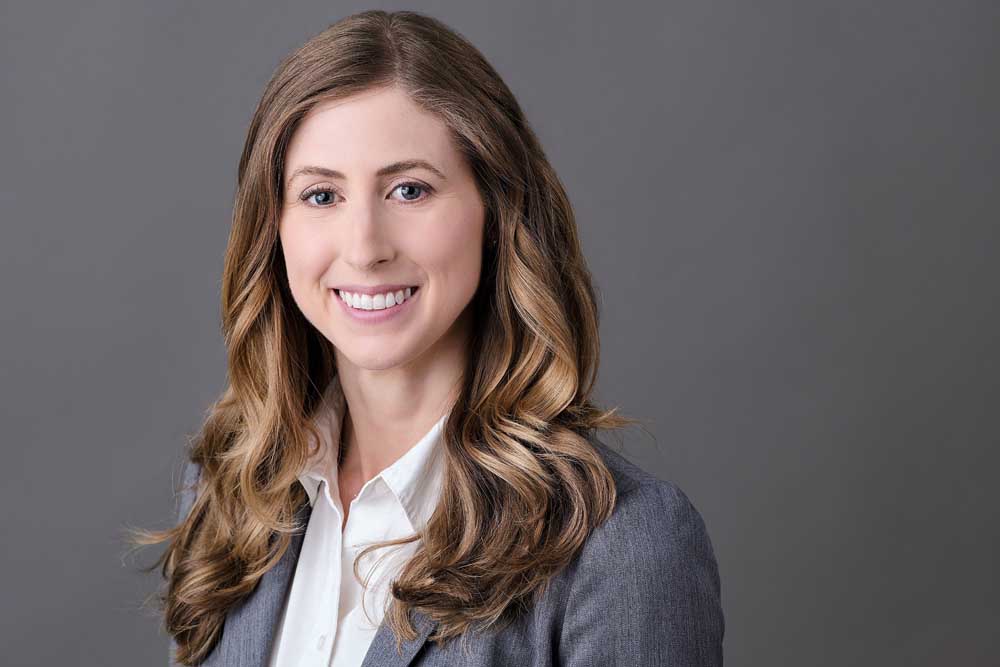Sponsored Content
Medicare expands telehealth coverage during COVID-19 pandemic
Published 12:15 pm Thursday, April 30, 2020

- Dr. Robyn Migliorini is a licensed psychologist who runs Connected Cognition, a telehealth clinic in Bend.
Almost four years ago, Robyn Migliorini made a cross-country journey from San Diego to Boston to begin a psychology internship at Harvard Medical School/Massachusetts General Hospital. Last August she crossed the country yet again. This time, she was headed for Oregon.
By December, the licensed psychologist had begun seeing patients at her Bend-based private practice on SW Century Drive. Migliorini, a Ph.D. in Clinical Psychology whose clinical specialties include neuropsychology, adult ADHD and brain aging, also established a telehealth clinic called Connected Cognition.
Drawing on her experience as a postdoctoral fellow at the Bedford VA Medical Center in Massachusetts, where she helped launch one of the first telehealth neuropsychology clinics in the country, Migliorini offers cognitive-behavioral therapy to at-home patients through video chat.
For many rural Oregonians, telehealth appointments are an essential service that reduce the need for costly and time-consuming in-office doctor visits. For those living in urban areas, where proximity to a healthcare provider is less of an issue, telehealth appointments can be equally important.
“Even in Boston, I saw patients forgo treatment for logistical reasons — it was simply too difficult to take time away from work, school, and family life to attend a weekly in-person therapy appointment,” Migliorini said.
Now the novel coronavirus has thrust telehealth into the spotlight. When the pandemic began to grip the country last month, daily routines shifted dramatically for many people. Nonessential businesses were forced to shut down, stay-at-home orders were issued, and online classes became the new educational norm.
That level of upheaval can cause anxiety for anyone, but it can be especially difficult for people with disorders that impact attention and executive functioning, like ADHD, or for those with neurodegenerative diseases such as Alzheimer’s or Parkinson’s.
“Right now, COVID-19 is presenting all sorts of circumstances — health scares, social isolation, economic despair — that can increase anxiety,” Migliorini said. “Many people may be worried, lonely or especially distracted. And I’m concerned that folks might be delaying seeking help and support.”
As infection rates began to soar in March, Medicare announced that it would expand coverage for telehealth services in an effort to keep seniors at home and combat the spread of the virus. Under the new emergency expansion, Medicare beneficiaries can now “see” a doctor or nurse practitioner virtually to discuss both concerns related to the coronavirus and unrelated medical or mental health issues.
“As a clinician who does a lot of work in aging and brain health, I see a lot of Medicare patients, and in general this group includes many individuals who would be considered higher risk if infected with the coronavirus,” Migliorini said. “When the expanded telehealth coverage was announced, I felt so pleased and relieved that my patients would have the option to get clinical services directly to their homes.”
Migliorini communicates with her patients through SimplePractice, a secure video chat service designed for clinicians. She sends her patients a unique video link via email or text that they can open with an Internet browser, without having to download any special software. There’s a smartphone app, too.
Medicare’s expanded telehealth coverage won’t necessarily continue once the coronavirus pandemic ends, but Migliorini is hopeful that its benefits will become clear.
“Can we make seeing a physician or psychologist truly convenient so that people can optimize their health and well-being, rather than putting off care until their symptoms have escalated to intolerable levels?” she wonders. “I think telehealth options are a critical component of patient-centered care, care that is designed around the patient’s needs, that puts the patient first. With or without COVID-19, I think this type of flexibility and adaptability is incredibly important to the future of healthcare.”
If you would like to learn more about telehealth therapy with Dr. Migliorini, you can contact her clinic on the web or by phone at 781-288-5141.








